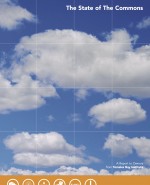US News & World Report, June 16, 2008
You divvy it up. One person, one share. Wired to your bank account like Social Security.
Common Dreams.org, March 23, 2007
FOR YEARS we’ve heard the bad news about global warming. What we haven’t heard is the good news: we’ll earn an enormous cash windfall if we fight global warming the right way.
OnTheCommons.org, 2003

ALL AMERICANS are joint owners of a trove of hidden assets. These assets — natural gifts like air and water, and social creations like science and the Internet — constitute our shared inheritance. The trouble is, our common wealth — and our children’s — is being squandered.
State of the Commons 2003
The American Prospect, November 16, 2001
THE ALASKA Permanent Fund hasn’t attracted much attention in the Lower 48—but it should. For citizens of all states are about to inherit another gift of nature worth trillions of dollars. And hardly anyone is talking about it.
Los Angeles Times, March 13, 1995
SOME POLITICIANS say that ending welfare will improve the character of those who depend on it—make them think twice about having kids, getting divorced or just being lazy.
The Nation, February 7, 1994
IF YOU THINK creating enough well-paying jobs to retain America’s current living standard is challenging, it’s child’s play compared to what Paul Hawken says we must do next: convert to an economy that sustains rather than destroys the earth.
Business and Society Review, Summer 1989
TO BE ETHICAL as a business because it may increase your profits is to do so for entirely the wrong reason. The ethical business must be ethical because it wants to be ethical.
Self-distributed, 1986
WHEN the National Cooperative Bank was created by Congress in 1978, it was the object of some modest hopes. With offices thoughout the country, it would be a source of capital for new and sometimes risky cooperatives that were shunned by conventional lenders. A decade later, is a go-go…
The Washington Monthly, October 1983
SEVEN years ago, at the age of 34, I decided to become a socialist entrepreneur. It seemed like a logical calling to pursue. As a journalist, I’d flung my share of arrows at the big corporations. But if the left rejected corporate capitalism, we had to show there are some workable alternatives.
The New Republic, June 14, 1975
NOT LONG AGO a West Coast bank president mentioned to me that a piece of land he had purchased along- side a new state highway had doubled in value in a few years. His windfall is an example of what John Stuart Mill called the “unearned increment.”

 Free distribution with attribution
Free distribution with attribution